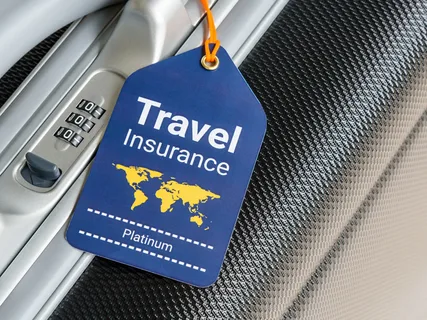
Introduction
Imagine planning the perfect vacation—flights booked, bags packed, and excitement bubbling over. But then, a sudden illness, flight cancellation, or lost luggage throws your plans into chaos. That’s where travel insurance steps in as your safety net. Yet, many travelers overlook it, either assuming it’s unnecessary or too expensive. In reality, travel insurance is not just about refunds; it’s about protecting yourself from unexpected financial and medical burdens while traveling.
What Is Travel Insurance?
Travel insurance is a policy designed to safeguard you against unforeseen events during your trip. It covers a wide range of risks, from medical emergencies and flight delays to trip cancellations and lost baggage. Think of it as a safety harness—you hope you won’t need it, but when you do, it can save you from a serious fall.
Why You Need Travel Insurance

Travel is unpredictable. Flights get canceled, luggage gets lost, and health issues can arise out of nowhere. Travel insurance provides peace of mind, ensuring you’re not left with hefty bills or stranded abroad. It’s not just a luxury—it’s a smart investment for anyone leaving home.
Types of Travel Insurance Coverage

Trip Cancellation and Interruption Insurance
Protects your investment if you must cancel or cut short your trip due to covered reasons like illness, family emergencies, or natural disasters.
Medical and Health Coverage
Covers hospital visits, doctor fees, and sometimes prescription drugs when you’re abroad.
Emergency Evacuation Coverage
Pays for emergency medical transport or evacuation due to political unrest or natural disasters.
Baggage and Personal Belongings Protection
Reimburses you for lost, stolen, or delayed baggage.
Flight Delay or Cancellation Coverage
Covers additional expenses like meals, hotels, and transportation if your flight is significantly delayed or canceled.
Accidental Death and Dismemberment Insurance
Provides benefits in the case of serious injury or loss of life during your trip.
Trip Cancellation and Interruption Insurance
This type of coverage ensures you don’t lose the money you’ve invested in flights, hotels, or tours. For example, if a family emergency arises and you can’t travel, you can claim reimbursement for non-refundable expenses.
Medical and Health Coverage Abroad
Many people assume their regular health insurance covers them overseas—but that’s not always the case. Travel insurance fills this gap, covering anything from a hospital stay due to food poisoning to emergency surgery after an accident. For travelers with pre-existing conditions, specialized policies are available.
Emergency Evacuation Coverage
In extreme situations, such as a political uprising or a natural disaster like an earthquake, emergency evacuation coverage ensures you’re safely transported out of harm’s way. For medical issues, it covers the cost of air ambulance services—which can run into tens of thousands of dollars without coverage.
Baggage and Personal Belongings Protection
Lost luggage is more common than many realize. Travel insurance reimburses the cost of your belongings and can even provide funds to buy essentials if your bags are delayed. It’s like having a backup wallet for when things go wrong.
Flight Delay or Cancellation Coverage
Flight delays can mean unexpected hotel stays, meals, or missed connections. With this coverage, you don’t have to worry about paying out-of-pocket while waiting for the next available flight.
Adventure and Extreme Sports Coverage
Planning on skiing, scuba diving, or hiking? Many standard policies don’t cover risky activities. Adventure coverage fills this gap, ensuring thrill-seekers can explore with confidence.
How to Choose the Right Travel Insurance Policy
Not all travel insurance policies are created equal. When choosing one, consider:
- Destination: Some places have higher medical costs or risks.
- Duration: Long trips may require more comprehensive coverage.
- Planned Activities: Adventure sports may need additional coverage.
- Budget: Balance cost with the level of protection.
What Travel Insurance Does Not Cover
Every policy has exclusions. Typically, travel insurance won’t cover:
- Pre-existing conditions (unless specified)
- High-risk activities not listed in the policy
- Losses due to reckless behavior or intoxication
- Unapproved medical treatments
Reading the fine print is crucial to avoid surprises.
Tips for Buying Travel Insurance
- Buy early to maximize cancellation benefits.
- Compare providers to get the best value.
- Read the fine print carefully before committing.
- Look for 24/7 support services—they can be a lifesaver abroad.
Cost of Travel Insurance
The price of travel insurance depends on factors like trip cost, destination, traveler’s age, and coverage type. On average, expect to pay 4–10% of your total trip cost for a solid policy.
Conclusion
Travel insurance might seem like an extra expense, but it’s really an investment in peace of mind. Whether it’s a canceled flight, a stolen bag, or an unexpected hospital visit, coverage ensures your dream trip doesn’t turn into a nightmare. So before your next adventure, ask yourself: would you rather travel with a safety net—or without one?
FAQs
1. Is travel insurance worth it for short trips?
Yes, even short trips can face cancellations, delays, or medical emergencies.
2. Does travel insurance cover COVID-19?
Many providers now offer COVID-19 coverage, but always check your policy details.
3. Can I buy travel insurance after booking?
Yes, but buying early ensures better cancellation benefits.
4. Is travel insurance mandatory for all countries?
No, but some countries require proof of coverage for entry.
5. How do I make a claim?
Contact your insurer immediately, keep receipts, and follow their claim process.
